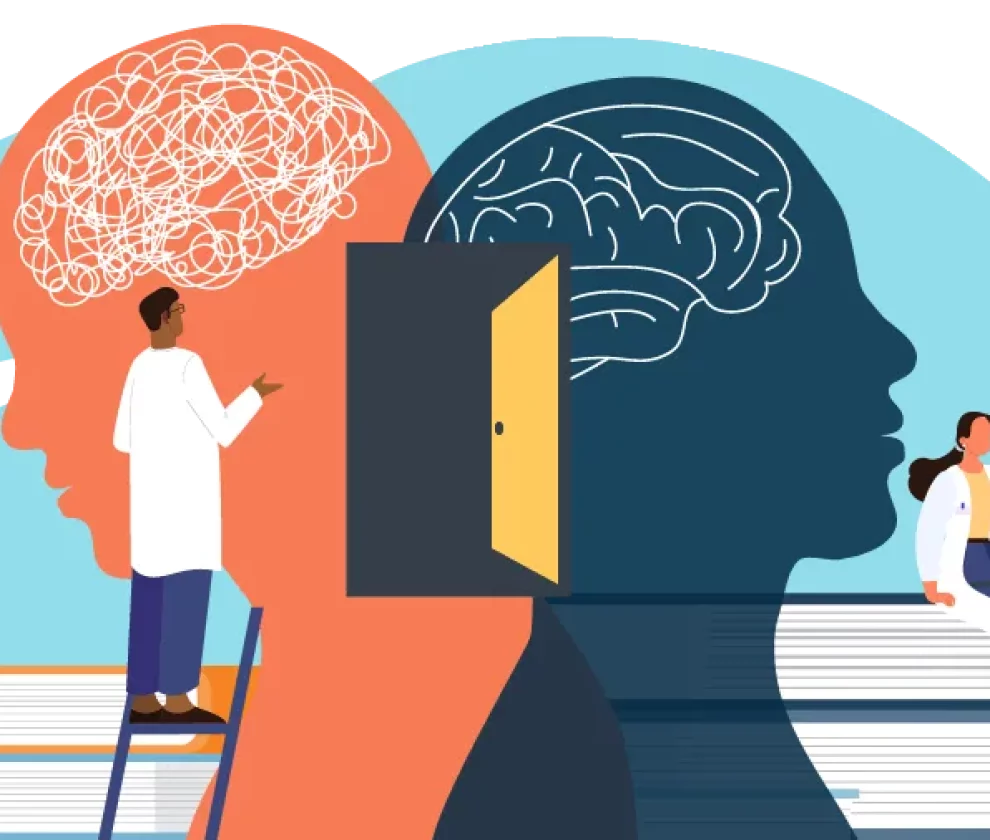Sometimes, people say things like, “That person is so bipolar,” or “She’s such a narcissist.” But what do those words really mean? Are they the same? Can someone be both? That’s what we’re going to talk about today.
Bipolar disorder and narcissism are very different, but they can look a little similar at first. Both can cause big feelings, fast changes, and tricky behavior. This can confuse people, especially if someone seems very full of themselves one day and very sad the next.
I used to think they were kind of the same thing, too. But after learning more, I realized they come from different places in the brain and need different types of help.
What bipolar disorder is, what narcissism is, how to tell them apart, and where you can get help if you or someone you care about is going through it. And if you’re in Roswell, Georgia, there’s a great place called Novu Wellness that can help you figure things out.
You don’t have to navigate this alone. Whether it’s mood swings or personality challenges, Novu Wellness offers professional support tailored to your needs.
What Is Narcissism?
Narcissism is more than just liking how you look. It’s not just about taking selfies or wanting compliments. People with Narcissistic Personality Disorder (NPD) act like they are better than everyone. But deep inside, they may feel small or scared.
Here’s what they might do:
- They always want to be praised.
- They don’t think about other people’s feelings.
- They get angry when someone tells them “no.”
- They may try to control others or act like a boss.
I used to think narcissism was just being confident. But now I know it’s different. Confidence is healthy. Narcissism is when someone cares only about themselves and hurts others without feeling bad about it.
Not everyone who shows off is a narcissist. Real narcissism is a pattern that happens all the time, not just once in a while. If you’re curious about how narcissism overlaps with other conditions, check out Covert Narcissism vs BPD for a deeper comparison.
What Is Bipolar Disorder?
Bipolar disorder is a mood disorder. That means it affects how a person feels. Some days they might feel super happy and excited. Other days, they might feel very sad or tired. These feelings are called episodes.
Bipolar disorder has two main types:
- Bipolar 1 has very strong “high” feelings called mania. A person may talk fast, feel like a superhero, or make big choices they later regret.
- Bipolar 2 has softer “highs” called hypomania and more sad times called depression.
I once thought bipolar meant changing moods quickly, like being angry one minute and fine the next. But it’s more than that. These mood changes can last for days or even weeks.
People with bipolar disorder are not “crazy.” They have a real condition that needs care like therapy and sometimes medicine. To understand the symptoms better, you can explore Signs and Symptoms of Bipolar Disorder or learn Is Bipolar Disorder Genetic?.
Bipolar Disorder and Narcissism: Why People Confuse Them
Sometimes, bipolar and narcissism look the same on the outside. That’s why people get them mixed up. Both can make someone act loud, bold, or even mean. But the reason why they act this way is very different.
When someone with bipolar disorder feels “up,” they might talk too much or take big risks. This is called a manic episode. But later, they might crash and feel very sad.
With narcissism, the big behavior never stops. The person may act proud or selfish all the time, not just during one part of the week.
I used to think someone who brags a lot must be bipolar. But now I know that bragging during mania is different from bragging all the time. One comes and goes. The other stays.
That’s why it’s important not to guess. Only a mental health expert can tell the difference. And sometimes, the confusion grows when other conditions overlap too. For example, check out PTSD vs Bipolar or Is Bipolar and Borderline Personality Disorder the Same? to learn about common mix-ups.
Narcissism vs. Bipolar Disorder: Simple Comparison Table
These two disorders can look alike, but they are not the same. This table will help you see how they are different, side by side.
| Feature | Narcissism | Bipolar Disorder |
| Type | Personality disorder | Mood disorder |
| Mood Changes | Mood doesn’t change in episodes | Big mood swings (highs and lows) |
| Grandiosity | Always feels overly important | Feels overly important only during manic episodes |
| Empathy | Doesn’t care about others’ feelings | Can care, but may not show it during mood episodes |
| Behavior Pattern | All the time, long-term behavior | Comes and goes in episodes |
| Sadness or Depression | Not common | Very common during depressive episodes |
| Risky Behavior | May manipulate or control others | May act risky during mania, not always |
| Treatment | Long-term therapy to build self-awareness | Therapy + medicine to balance mood |
Bipolar 1 and Narcissism
People with Bipolar 1 go through strong “up” times called mania. During mania, they may:
- Talk a lot
- Feel super powerful or like they can do anything
- Spend money quickly
- Takes big risks without thinking
Sometimes, they seem like they think they’re better than everyone. That can look like narcissism. But here’s the truth: when the mania ends, they often feel tired, sad, or even sorry for what they did.
With narcissism, the person always acts like they’re the best. It doesn’t come and go.
So yes, Bipolar 1 can look like narcissism but only for a short time. That’s the big difference. If you’re noticing these types of mood swings and want structured care, outpatient mental health treatment might be a good option to explore.
Bipolar 2 and Narcissism
Bipolar 2 is a little different. The “up” feelings (called hypomania) are not as strong. The sad feelings (called depression) are deeper and last longer.
A person with Bipolar 2 might:
- Have lots of energy sometimes
- Sleep less
- Feel very sad other times
- Lose interest in things they used to like
They may seem like they don’t care about others but it’s often because they’re tired, not selfish.
Some people think this looks like narcissism. But it’s not. Narcissism is about thinking you’re the best all the time. Bipolar 2 is about mood changes that go up and down.
Fatigue and sadness can impact daily life. If you’re wondering how these symptoms connect, check out Why Does Depression Make You Tired? for more insight. And if you’re considering support, here’s what to know about getting disability for bipolar disorder.
Can Someone Have Both?
Yes, some people can have bipolar disorder and narcissism at the same time. This is called comorbidity. It’s not common, but it can happen.
I used to think it was one or the other. But then I learned that some people have both at once. It’s hard to figure out because the two conditions can look the same in some ways.
Doctors say about 1 out of 10 people with bipolar disorder may also show narcissistic traits.
But here’s something important: having a few traits doesn’t mean someone has a disorder. Only a doctor or therapist can say for sure.
That’s why getting help matters. If someone is acting in ways that hurt themselves or others, it’s time to talk to a professional. If you’re navigating this with someone close to you, Living With a Spouse With Mental Illness offers compassionate guidance for families and loved ones.
What Social Media Gets Wrong
Have you seen people on TikTok or Instagram saying, “He’s such a narcissist,” or “She’s bipolar”? It happens a lot. But here’s the problem those people aren’t doctors.
Social media is fun, but it’s not where you should go for a real diagnosis. I’ve seen videos where someone acts silly, and the comments say, “That’s bipolar!” But that’s not how mental health works.
Some videos help people learn. But others just guess or spread wrong ideas. That can hurt people who really have these conditions.
So here’s my advice: Don’t believe everything online. If you’re worried about yourself or someone else, talk to a real mental health expert. Not a meme. If you’re unsure how to support someone going through a crisis, here’s what to say to someone who is self-harming.
Living With or Loving Someone With These Conditions
If someone you care about has bipolar disorder or narcissism, it can be tough. One day they may be happy and kind. The next day, they may seem mean or distant.
I’ve known people who felt lost trying to help a loved one. It’s confusing. But it’s not hopeless.
Here’s what helps:
- Learn about the condition
- Set healthy rules (called boundaries)
- Take care of yourself too
Loving someone doesn’t mean you have to let them hurt you. You can care for them and still protect your heart.
You might find strength and clarity in reading How to Cope with a Bipolar Parent or Grown Child with Mental Illness if you’re navigating these roles.
Where to Get Help in Roswell, GA
If you’re in or near Roswell, Georgia, Novu Wellness on Woodstock Road is a trusted place where you can get real help and support
They help people with:
- Mood changes like bipolar disorder
- Personality issues like narcissism
- Family struggles, sadness, or stress
I’ve seen how helpful it is to talk to someone who listens and understands. At Novu Wellness, they don’t just give labels. They give support.
If you or someone you know needs help, don’t wait. You deserve peace, and it’s okay to ask for it. Not sure how to begin? Start with selecting a Mental Health Therapist in GA, or learn about the Best IOP Treatment in Suwanee GA for more intensive care options.
Frequently Asked Questions
Q: Can narcissism look like bipolar disorder?
Yes, sometimes. Both can make people act big or bold. But bipolar behavior comes and goes. Narcissism is there all the time.
Q: Can someone have both?
Yes. Some people do have both conditions. But it’s rare. Only a doctor can know for sure.
Q: What’s the difference between bipolar and narcissism?
Bipolar is a mood disorder, it changes how someone feels. Narcissism is a personality disorder. It’s how someone acts and thinks all the time.
Q: Can you treat both?
Yes! Therapy helps. Medicine can help with bipolar. Talking to a therapist can help with narcissism.
Q: Should I get help even if I’m not sure what’s wrong?
Yes. If you’re confused, sad, or scared, talking to someone is a good idea. You don’t need to figure it out alone.
Conclusion
It’s easy to mix up bipolar disorder and narcissism. I used to do it, too. But now I know they’re different and both need care and kindness.
If you or someone you know is struggling, it’s okay. There’s help. And if you’re in Roswell, GA, Novu Wellness is a great place to start.
You don’t need all the answers right now. You just need to take one step.
Let’s stop guessing and start understanding together. For more insights into complex emotional health, you might also explore High-Functioning Depression or What to Look for in Mental Health Facilities near Lawrenceville, GA.




